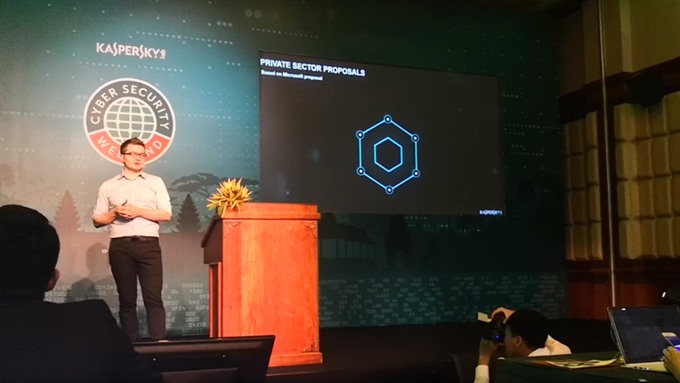Asian countries are vulnerable to the risk of cyber threats caused by the Balkanisation of cyber space, Russia-based global cybersecurity firm Kaspersky Lab has warned.

Asian countries are vulnerable to the risk of cyber threats caused by the Balkanisation of cyber space, Russia-based global cybersecurity firm Kaspersky Lab has warned.
Speaking at its fourth Asia Pacific Cyber Security summit in Cambodia last week, Stephan Neumeier, managing director, Kaspersky Lab APAC, said: “We can clearly see that the utopia of a borderless digital global village is coming to an end.
“With different countries building their local web fences, the initially free internet is turning into divided and independent patches of online states, which may benefit individual countries to some extent, but will surely be an ace card for criminals aiming to unleash worldwide cyber threats.”
Kaspersky’s director of global research and analysis team in APAC, Vitaly Kamluk, said: “The volume of new malware we detect daily has been increasing year-on-year in number, in sophistication and in reach.
“The future of the internet is fragile and, as nations scramble to beef up their defences, we are giving birth to Balkanisation. However, fragmentation is not the armour we need to face the menace of the internet of tomorrow.
“Remember, a divided world is easier to conquer.
“We need co-operation, collaboration, and mutual trust to effectively thwart these cybercriminals who acknowledge neither geopolitics nor borders.”
Kaspersky Lab founder and CEO Eugene Kaspersky has noted in an article how countries like Brazil and Germany are considering, or may have already kicked off their independent sector of the internet, which involves building parallel networks, isolated from the internet, for highly confidential communications exchanges.
Aside from this, several countries are also crafting policies requiring global tech giants like Google and Facebook to shift their data centres to local locations to curb foreign spying and overseas data intrusions.
Kaspersky has emphasised that Balkanisation and the advent of protectionism being displayed by nations around the world will benefit no one but the cybercriminals.
Held annually, this year’s conference saw key cybersecurity issues presented by the company’s top researchers and executives to an audience of journalists from 11 countries across the region.
The four-day event, with the theme “Balkanisation: Security Should Not Be in Isolation”, highlights the possible perils of de-globalisation of the internet alongside an overview of cyberthreats involving countries in Asia. — VNS






